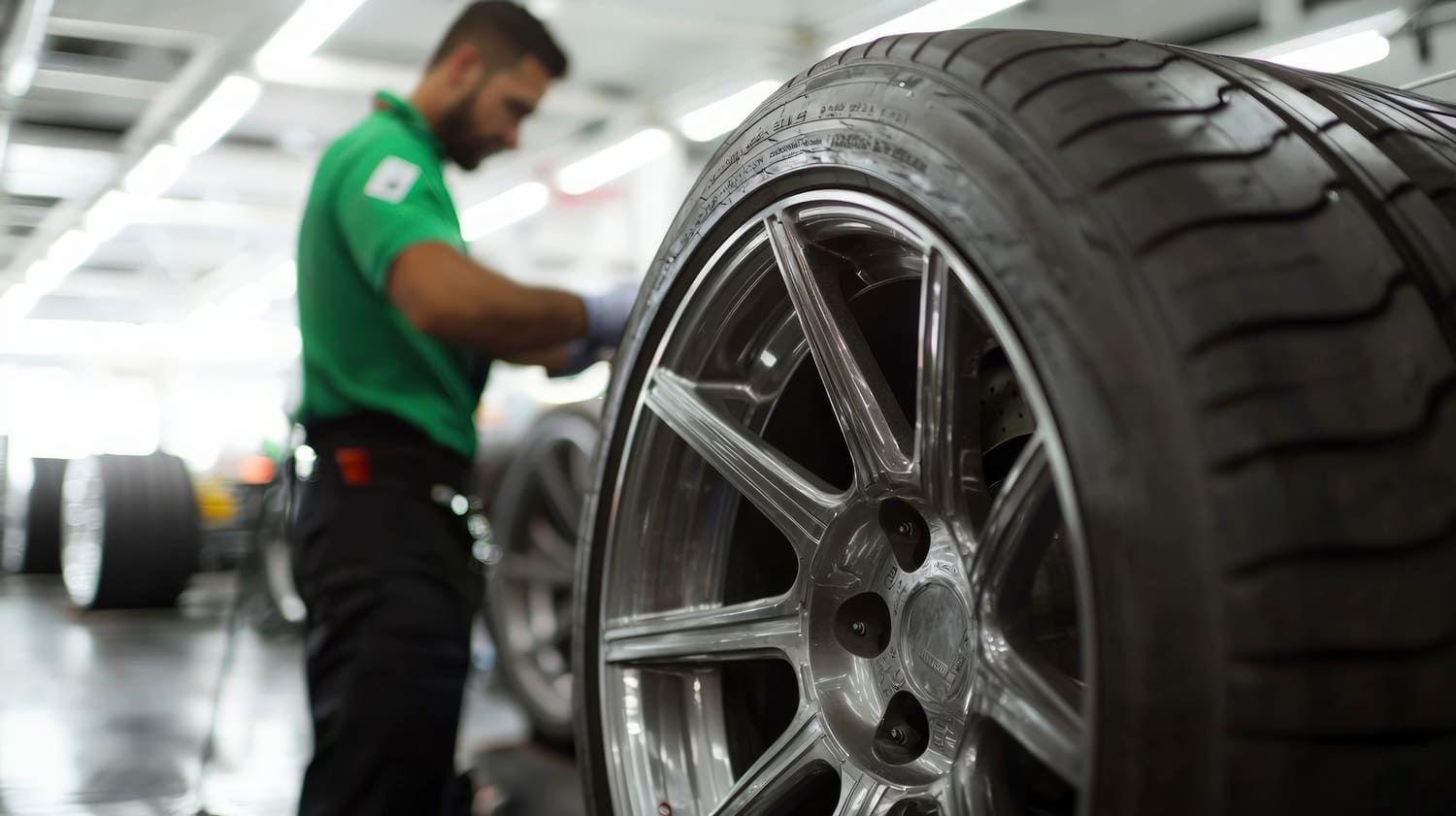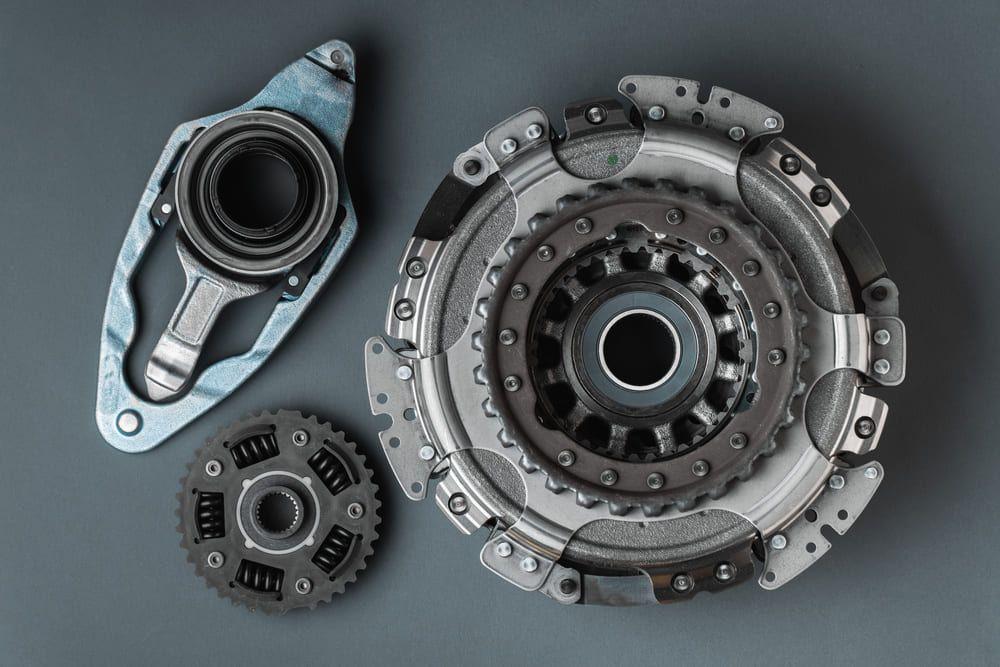
How Much Does Alloy Wheel Refurbishment Cost In The UK?
Alloy wheel refurbishment in the UK typically costs between £60 and £130 per wheel, depending on size and finish.
With modern cars larger than ever, curb and pothole damage can sometimes be an unavoidable part of everyday driving. Fortunately, most alloy wheel damage can be repaired using filler and paint, though it doesn’t come without a cost.
Here’s everything you need to know before you book.
Key takeaways
How Much Does Alloy Wheel Refurbishment Cost?
Typical alloy wheel refurbishment costs between £60 to £130 per wheel.
But your final cost depends on a range of factors, such as:
Wheel size
Finish type
Locational costs
Multi-wheel discounts
For example, larger wheels can cost more, but it may be cheaper to have all 4 done at once.

Alloy Wheel Refurbishment Cost Guide
The below table shows a rough estimate of prices for alloy wheel refurbishments.
Wheel Size | Finish Type | Price Range (Single Wheel) | London & SE | Other Regions |
|---|---|---|---|---|
Up to 17” | Powder Coated | £70 – £90 | ~£85 | ~£75 |
Diamond Cut | £90 – £110 | ~£105 | ~£95 | |
Polished | £160 – £180 | ~£175 | ~£165 | |
18” | Powder Coated | £75 – £95 | ~£90 | ~£79 |
Diamond Cut | £100 – £120 | ~£115 | ~£102 | |
Polished | £170 – £185 | ~£180 | ~£172 | |
19” | Powder Coated | £80 – £100 | ~£95 | ~£85 |
Diamond Cut | £110 – £130 | ~£125 | ~£112 | |
Polished | £185 – £200 | ~£195 | ~£188 | |
20” | Powder Coated | £90 – £110 | ~£105 | ~£92 |
Diamond Cut | £120 – £140 | ~£135 | ~£125 | |
Polished | £200 – £215 | ~£210 | ~£205 | |
21”+ | Powder Coated | From £100 | £110+ | £100+ |
Diamond Cut | From £130 | £140+ | £130+ | |
Polished | From £225 | £235+ | £225+ |
Disclaimer:These prices are based on industry averages and are intended as a guide. Actual quotes may vary depending on your location, wheel condition, and service provider.
Prices tend to be highest in London and the South East due to increased labour and facility costs, while the Midlands offers average national rates and the North typically provides the most competitive pricing.
You may get better prices for full sets, which often qualify for discounts when booked in advance.Car repair finance can also help you split the costs.
What are the different types of wheels?
Not all wheel types cost the same to refurbish because of differences in finish and repair complexity.
The main types include:
Powder coated
Diamond cut
Polished alloys
Powder-coated alloy wheels are usually the most affordable to restore, offering a durable, uniform finish in many colours.
Diamond cut wheels, with their machined shiny faces and painted sections, require specialist lathing, which increases the cost.
Polished alloys, finished through a detailed ceramic polishing process for a high-gloss shine, are the most expensive and time-consuming to refurbish.
Can your alloy wheels be fixed or do they need replacing?
Most alloy wheel damage, including deep scratches, can usually be repaired.
However, severe dents from impacts like potholes or curbs may be beyond repair.
Kerbing or scratches
Clipping your wheel on the kerb whilst parking has to be one of the worst feelings.
Thankfully, wheels are durable, and most scratches or kerb rash can be repaired.
However, if the wheel has many marks, replacement might be worth considering, depending on its type and age.
Dents or bent wheels
Wheels endure heavy force during driving, especially when hitting potholes, often causing bends or dents that may not be visible but cause vibrations.
While some dents can be repaired, it’s usually risky. Aluminium alloy wheels aren’t as flexible as steel and may crack when bent back, making repairs unreliable.
Peeling or bubbling
Alloy paint bubbling is a common, unsightly problem that can affect cars of any age. It’s usually caused by water getting under the coating after a stone chip or kerb damage.
Fortunately, it is relatively easy to fix. Plain silver wheels are cheaper to repair while diamond cut wheels cost significantly more.
How long does alloy wheel refurbishment take?
Alloy wheel refurbishment usually takes one to three days, depending on the damage and wheel finish.
More complex repairs (e.g., diamond cut or polished wheels) can take longer to achieve a flawless result. Always check with your service provider for an accurate timeframe.
Does alloy wheel refurbishment affect resale value?
Yes, alloy wheel refurbishment can improve your car’s resale value by restoring wheels to a like-new condition, making the vehicle more attractive to buyers.
However, the improved resale value can depend on your repair job. For example, poor-quality repairs might have the opposite effect, so always choose a reputable specialist.
Is it cheaper to refurbish or replace alloy wheels?
Refurbishing alloy wheels is generally cheaper than replacing them, especially for minor damage like scratches or kerb rash.
However, if the wheels are severely damaged or cracked, replacement may be a more cost-effective option.

Can cracked alloy wheels be repaired?
Cracked alloy wheels can sometimes be welded to restore structural strength, but this is usually only recommended for the barrel, the drum section hidden when the wheel is fitted. The length of the crack is also important.
In some cases, repairing the wheel is not advisable and replacing it with a new or second-hand wheel is a better option.
How much does alloy wheel welding cost?
You can expect to pay upwards of £80 for the simplest of cracks to be welded up.
But remember, costs for welding cracked alloys vary from wheel to wheel, depending on the location and shape of the crack.
Be sure to choose a company that also balances and straightens your wheels, as skipping this step can lead to uncomfortable vibrations while driving.
Can you refurbish alloys at home?
You can refurbish alloys at home, but it’s not always recommended.
Overall, refurbishing your wheels is good for light scratches but not safe for dents, gouges or cracks. These are best left to pros.
Note: Many of the products involved are hazardous when applying and sanding, and achieving a smooth, professional finish can be difficult without practice.
Last words
Alloy wheel refurbishment costs depend on size, finish, and damage, with prices varying by region, and don’t forget that booking multiple wheels usually saves you money.
Quality refurbishment is a smart way to bring your wheels back to life without the cost of full replacement. We hope this guide has helped you decide what’s best for your car.
Split the cost with Bumper
Alloy wheel scratches aren’t the only costs for drivers. Last-minute repairs can also strain your budget.
With Bumper's car repair loans, you can split the cost of repairs into monthly payments at no extra cost.
Apply online for up to £5,000 and choose from 1,000s of trusted repairers.

Split your car repair cost over monthly repayments interest-free.

Split the cost of your next repair
Other related articles from our blog

Advice
4 min read
How much does a sump oil leak repair cost?
A sump oil leak repair cost can sit anywhere from £50 to over £700. See the average prices per repair and see the next steps online now with Bumper.

Advice
4 min read
How much does a Tesla scratch repair cost?
Tesla scratch repair costs £80 to £1,200, depending on how deep the scratches are and which part of the vehicle is damaged. Find out more online now.

Advice
4 min read
How Much Does a DSG Gearbox Repair Cost?
Due to their complexity, DSG gearbox repairs typically cost between £200 and £2,500. Find out more about DSG gearbox repairs and replacements here.